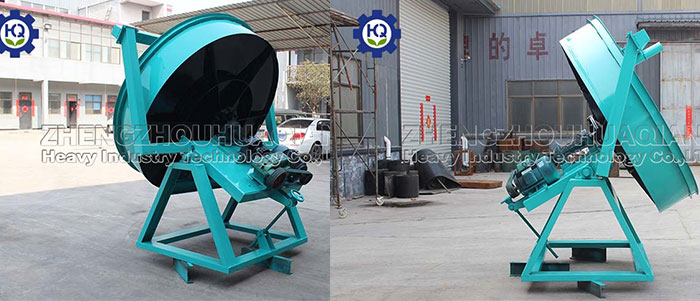
Disc granulators are widely used in fertilizer, feed, chemical, and other industries. Pellet hardness directly impacts product quality and performance during transport and storage. Key influencing factors include:
1.Raw Material Properties
Material Fineness: Finer powder leads to tighter packing and harder pellets.
Moisture Content: Too low causes loose pellets; too high causes deformation. Optimal moisture is usually 10%-15%.
Binder Choice: Adding suitable binders (like bentonite, starch, or special adhesives) significantly boosts hardness.
2.Process Parameters
Disc Tilt Angle: A steeper angle gives longer rolling time and denser pellets, but avoid excessive rolling causing breakage.
Rotation Speed: Too slow reduces pellet formation rate; too fast makes pellets loose. Typically control between 20-35 rpm.
Liquid Spray Method: Even atomization affects pellet structure. Spray volume must match the feed rate.

3.Equipment Condition
Disc Granulator Surface Smoothness: A smooth disc reduces sticking, but a slightly rough surface helps compact pellets better.
Scraper Blade Position: Adjust the angle correctly to ensure even material mixing and avoid clumping or separation.
4.Environmental Factors
Production temperature and humidity change the material's physical properties, affecting pellet hardness. In dry seasons, slightly higher moisture might be needed. In humid conditions, better control of the drying step is required.
In short, pellet hardness in disc granulators depends on many factors. Companies should test and fine-tune parameters based on their specific production to get the best results.